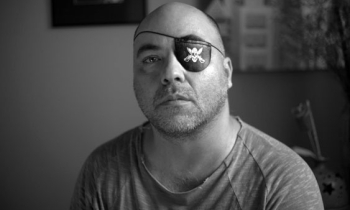Pakistan does not investigate murders of its own journalists as vigorously as it does of foreign journalists. An international press freedom group last week urged Pakistan to investigate the deaths of seven Pakistani journalists as diligently as it did the killing of US journalist Daniel Pearl in 2002.

Pakistani officials have, howqever, promised to review investigative records and reveal government information on the deaths of seven journalists killed for their work since 2002, as well as official records in 20 other cases in which journalists have been assaulted or improperly detained.
The pledge came during meetings between a delegation from the Committee to Protect Journalists (CPJ) and Pakistani Interior Minister Aftab Ahmed Khan Sherpao, Secretary of the Interior Syed Kamal Shah, and Northwest Frontier Province (NWFP) Governor Ali Mohammed Jan Orekzai. They also pledged to establish a continuing dialogue with Pakistani journalist organisations and to assure them of government support for journalists' safety.
"We're pleased by these initial promises from Pakistani officials, but it's important to note that this is just a start in ensuring that journalists can cover sensitive issues without fearing for their lives," said CPJ's Asia Programme Coordinator Bob Dietz.
The CPJ delegation, which arrived in Islamabad on July 21, sought the meetings following the killings of freelance journalist Hayatullah Khan on June 16 in North Waziristan and Munir Ahmed Sangi, of the Kawish Television Network (KTN) on May 29 in Larkana. CPJ expressed concern that eight journalists have been killed for their work in Pakistan since 2002 and only one of those cases — that of Pearl — has been thoroughly investigated.
Daniel Pearl, South Asia correspondent for the Wall Street Journal, went missing on January 23, 2002 in the port city of Karachi, and was last seen on his way for an interview in a restaurant. Four days after his disappearance, a group calling itself "The National Movement for the Restoration of Pakistani Sovereignty" sent an email to several US and Pakistani news organizations claiming responsibility for kidnapping Pearl and accusing him of being an American spy.

US officials confirmed on February 21 that Pearl had been killed by his captors. The exact date of his murder was uncertain, but authorities announced his death after receiving a graphic, three-and-a-half minute digital videotape containing scenes in which one of the killers slit Pearl's throat, and then someone held his severed head. Pearl had been reporting on Richard Reid, a suspected terrorist who allegedly tried to blow up an airplane during a transatlantic flight with a bomb in his shoe.
The killing of Pearl became a cause celebre in the international media, and the Pakistan government was forced to act in the face of intense pressure from the US. Pearl's story is being turned into a film, titled A Mighty Heart based on a book written by his widow. The film, produced by Brad Pitt, will star Angelina Jolie.
"The investigation and prosecution of those responsible for the murder of Wall Street Journal correspondent Daniel Pearl showed the government of Pakistan can perform well in combating crimes against journalists," said delegation member David Marash, a CPJ board member and anchor for soon-to-be-launched Al-Jazeera International.
"We have proposed several concrete steps that could ensure a similar level of performance in the cases of crimes against Pakistani journalists. We feel our ideas got a fair and sympathetic hearing from government officials, and we await the expression of that sympathy in appropriate actions."
While Pakistan's press is vibrant and growing, it has faced escalating threats in recent months, CPJ research shows. The CPJ delegation proposed that the government take the following steps to enhance the confidence of Pakistani journalists and the international community in the government's commitment to protect press freedom:
- Public recognition by the government that a crisis exists that threatens the lives of working journalists and the flow of accurate information to the Pakistani people.
- Creation of a special unit in the Interior Ministry to deal with crimes against journalists.
- Publication by this investigative unit of regular public reports reflecting its work on each case.
- Convening of public news conferences within a week of each report's publication so unit officials can address questions about the investigations.
- Creation of parallel structures in tribal territories to track crimes against journalists in those areas.

The CPJ delegation, which also included journalist Richard Murphy, met members of the Pakistan Federal Union of Journalists, the Tribal Union of Journalists, and other journalists to learn of the threats that media workers face from all sides. Journalists told the delegation they are often threatened by the groups they cover and that they fear retribution from the government, including illegal detentions and harassment. Many journalists also spoke of the lack of support they felt from the news organisations for which they work, saying the outlets are reluctant to confront the government when their reporters are arrested or detained.
Several recent cases have raised alarm about the safety of Pakistani journalists. Two television journalists — Geo TV correspondent Mukesh Rupeta and freelance cameraman Sanjay Kumar — were held in an undisclosed location for more than three months by the government before being charged under the Official Secrets Act and released on June 22. Authorities have told Pakistani journalists that they do not know the whereabouts of another journalist, Daily Kawish correspondent Mehruddin Mari, despite the fact that he was apparently detained by police in Sindh province on July 2.
"The commitments made by the government are a welcome first step," Dietz said. "But we are concerned that cases of the late Hayatullah Khan and the missing Mehruddin Mehri — like those of other Pakistani journalists — have not been fully investigated or explained." The delegation is still seeking meetings with Minister of Information Mohammed Ali Durrani and government officials from North Waziristan with knowledge of the Hayatullah Khan case.
A half yearly report issued last week by Internews, an international non-governmental organisation operating in over 40 countries, recorded 48 incidents of attacks and harassment of Pakistani journalists, and two incidents of murder in the first six months of 2006. The report said 25 journalists were kidnapped or detained.

The analysis showed a disturbing trend of increasing incidents of violence against mediapersons and media property in Pakistan. In January 2006, it said, there were six incidents and in June the number of attacks had risen to 13. During the period under review, six attacks and raids by government and political groups on media property were reported, including press clubs at Peshawar, Khairpur and Quetta.
Geographically, Sindh proved to be the most dangerous region in Pakistan to practice journalism with 29 journalists victimised followed by 17 in tribal areas, 11 in Punjab and seven in the NWFP. Two journalists from the Northern Areas were also victims of harassment. The brunt of physical attacks and threats was faced by the print media where 52 journalists were at the receiving end while 14 electronic media journalists also coming under attack during the first six months of 2006.









